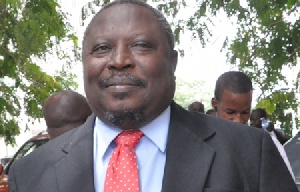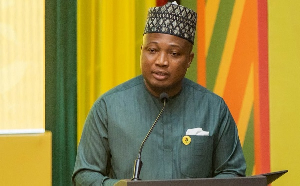It is not too clear what the agenda is, but at least to the discerning reader, it is not difficult to connect the Presidency with these orchestrated media attacks on the person of Mr Martin Amidu, especially judging from the manner in which documents bearing the seal of the Presidency, and relating to this whole judgment debt saga and the exit of Mr Amidu from office have been leaked to elements in the media in recent times.
What still beats the imagination of many is why the Presidency will go on such a trajectory, especially as the sitting President had no hand in the negotiation and payment of these dubious judgment debts that have been at the centre of these attacks.
The only reason the Mahama-link to these attacks may sound plausible could be borne out of a certain desire to manage the adverse impact of the whole Woyome affair on his government and the party, but if the strategy for managing the adverse fallouts is to attack the man, then it is bound to fail. This is because Mr Martin Amidu is, and will remain a hero of our time for a long time to come. The man now has such a large following cutting across political divides, that there is no way his detractors will win a public opinion battle against him. This is why the Public Agenda finds recent publications in the Al -Hajj and the Herald newspapers alleging dishonesty on the part of Mr Martin Amidu, purportedly for withholding the fact of a supposed apology letter he had written to the late President John Evans Atta Mills prior to his dismissal in January 2012, as needless and unfortunate.
This is because by their actions the newspapers have provoked Mr Amidu to speak to the circumstances leading to his removal from office and in the process revealed how manipulative, and by inference complicit the Presidency has been in this monumental fraud against the people of Ghana.
The Public Agenda can confirm that, when the news of his dismissal broke out in January 13 2012, Mr Martin Amidu immediately made available to this paper, his dismissal letter issued by the Presidency and a full brief of the circumstances leading to his exit from office. The brief included the said apology letter from Mr Amidu to the President, and how it was obtained.
It was clear from the evidence available to the paper, that Mr Martin Amidu had been tricked into writing the apology letter to the President for a supposed act of misconduct, following assurances of being allowed to continue his work the way he deemed fit. The whole plot smacked of deceit, betrayal of trust, and amounted to disarming Mr Amidu in the event of contesting his dismissal.
Realising that he had been set up, Mr Amidu requested Public Agenda at the time, to publish the full content of the dismissal letter and the circumstances leading to the decision. This, the paper advised against, considering the political ramifications for the Presidency if the circumstances were made public at the time. The editor of the paper, Dr Steve Manteaw, suggested it was not the time to make such disclosures of such confidential matters, and that it was appropriate to wait till provoked to do so.
We, at Public Agenda, undoubtedly one of Ghana’s most respectable newspapers, are happy that we were able to prevent an escalation of the Amidu-Government confrontation over the unjustified payment of colossal sums of money to Mr Alfred Agbesi Woyome, Waterville, and Isofoton – all in the name of judgment debt. At the same time, we regret that the recent publications by Al- Hajj, the Herald and others have provoked Mr Amidu to speak to the rather shameful circumstances, particularly, the clandestine manoeuvres to secure an apology from Mr Amidu, only for him to be dismissed.
The narrative on the circumstances leading to the dismissal of Mr Amidu in our view exposes government’s disgraceful role in the judgment debt scam, and the insincere efforts at retrieving the booty. Even as the paper supported Mr Amidu’s decision to pursue the Woyome case as an ordinary citizen of the land, we were hopeful he could do so while avoiding clashes with personalities connected to the Presidency and who had played various roles in his exit.
Clearly, the architects of Martin Amidu’s exit had hoped that the matter of Woyome would be handled in a manner that would have shielded certain government bigwigs who had in diverse ways facilitated these illegitimate payments. Unfortunately, it hasn’t worked out that way, and we can understand the frustrations, and how these have led to a badly thought out strategy to show Martin as a dishonest person who hid from the public, the fact of his having to apologise to the late President Mills prior to his dismissal.
It is the view of the Public Agenda that the media war against Martin Amidu is hurting the Presidency and the party more than it is damaging Amidu’s credibility. The political strategists in the government and the party should realise by now that it is just impossible to undo Martin’s achievements with such publications. At best, such newspaper stories will only generate disdain for their architects, and collaterally damage the political fortunes of the party and the government.
We believe it is in the government’s interest to ensure that the man is not provoked into making further embarrassing revelations in the course of fighting these unnecessary attacks on his person.
General News of Sunday, 12 April 2015
Source: Public Agenda













